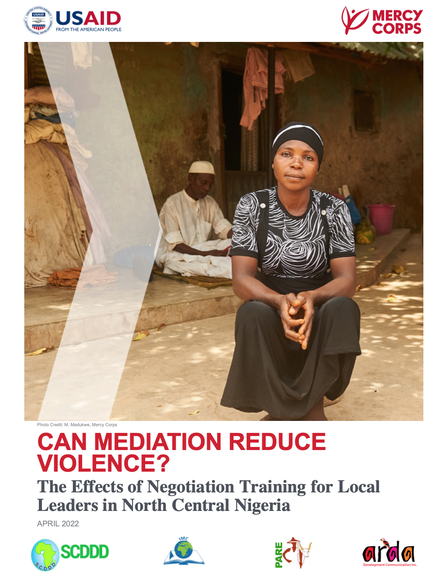
In numerous inter-communal conflicts around the world, local leaders are relied upon to help mediate and resolve disputes. In more remote areas, the state may not be present, and local leaders are often trusted more than other actors due to their knowledge of and connections with communities. Consequently, peacebuilding interventions often focus on local leaders as a key element to prevent or curb violence.
Yet little is understood about the effectiveness of interventions that support local leaders in their efforts to resolve disputes. Few evaluations of these programs have a comparison group, so it is unclear if the additional support that leaders receive helps them become more successful in resolving disputes. There is also little understanding of how these interventions benefit not just the leaders receiving the intervention and the disputants, but the overall community. Do communities see changes in security and social cohesion as a result of leaders receiving mediation and negotiation training?
To answer these questions, we conducted a randomized control trial (RCT) of a peacebuilding program in North Central Nigeria. The USAID-funded Communities Initiative for Peace Program (CIPP) addresses the proximate and root causes of violence in the region, including farmer-herder conflict, which account for a significant proportion of violence in Nigeria today. The program provides mediation training for local leaders, convenes dialogues between communities and policymakers, and engages in radio and social media interventions.
The RCT across 88 communities in Benue, Kogi, and Plateau states tested the impact of Interest-Based Mediation and Negotiation (IBMN) training for local leaders. Leaders who received the three-day training reported higher confidence in conflict resolution, perceived fewer violent incidents, and felt safer. At the community level, households in intervention areas experienced a significant drop in violence—29% reported a violent incident in the past six months compared to 55% in control communities—and reported greater feelings of security and increased social interactions across groups. However, mediation training did not significantly increase intergroup trust.